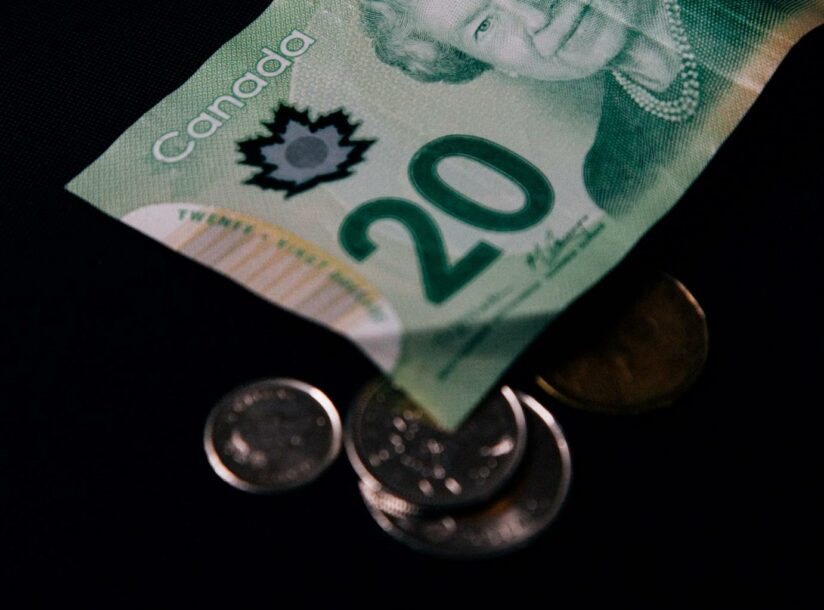Does your business owe money to the CRA? You have options to deal with tax debt.

We work with small business owners all the time who are struggling to pay their CRA debt. They’ve stretched their finances to cover materials, labour, and payroll and there’s just nothing left at the end of the day to pay back their debt to the CRA, despite their best intentions.

Sometimes the problem arises due to a significant, unexpected business expense or a slow sales period, but often it’s because the owner overlooked setting aside the money that will eventually be owed at tax time.
Small businesses & CRA tax debt – Jim’s Story
Jim, a small business owner, had a successful 3-year period of record-breaking sales and he was looking forward to expanding his business to reach new sales heights. But, like so many other small businesses, Jim had not filed his tax returns for the past 2 years. Fearing the amount he owed to the CRA, he decided to put off filing his taxes and move forward with his plans to expand. His thought was that the increased revenue, expected in the upcoming year, would be enough to pay off the prior years’ tax liabilities, and he also wanted to avoid the CRA until he was able to pay his debt.
As projected, his business sales did reach record levels—however, as in the previous years, he did not put any money aside for the CRA. At this point, Jim found himself deeper in debt with the CRA and even more fearful of filing his taxes. So, he didn’t file. He decided to lay low and continue with business as usual. But as it always will, the CRA eventually caught up with Jim—which is why he reached out to our Licensed Insolvency Trustees for help.
Jim’s story is a cautionary tale and one that, sadly, we see all the time with small (and large) business owners. The good news for Jim, and for anyone else in his situation, is that there are legal options available to help reduce and eliminate CRA tax debt, such as filing a Consumer Proposal.
What do I do if I’m behind on filing my taxes?
The first thing you need to do is stop avoiding the inevitable—you need to file your income tax returns before you fall further behind and run out of options. Yes, this could alert the CRA to your situation and it’s possible that the CRA will take action to recover the money you’re owing to them, but at least you still have a chance of recovering and keeping your business operational. Also, the CRA will insist that you are up to date with your tax filings before they will entertain negotiating your tax debt to a lower, more manageable amount.
It’s also important that you don’t pay off other creditors before you pay the CRA. We work with clients all the time who have paid off their high interest credit cards and personal loans rather than use their money to address a new or impending tax bill. The CRA may not appreciate this, and it could complicate future negotiations.
Next, start communicating with the CRA—do not ignore them. While your tax bill may feel overwhelming, communication with the CRA will buy you some time while you try to work something out. The CRA is a powerful, sophisticated creditor and will take legal action when it comes to debt collection (i.e. garnish your wages, freeze your bank account, put a lien on your home, etc.) and they will be more likely to implement these procedures if you’re not responding to or cooperating with them.
Now that you understand the importance of paying your tax debt, it’s time to create a plan to see if there’s a way you can pay your tax bill in full.
1. Consider selling your assets
Do you have any assets (a second car, a recreational vehicle, etc.) or can you cash in some investments to pay off the debt? It may feel extreme to cash in investments to pay off your debt, but the interest and penalties accumulated on an unpaid tax bill will usually far exceed any interest from investments.
2. Look into a mortgage or a line of credit
If you don’t want to sell off assets, another option is to get a mortgage or line of credit secured against your house to pay off the debt. Do NOT apply for new, unsecured credit that comes with high interest rates such as credit cards, Payday loans, or other instalment-type loans.
3. Talk to a financial planner
Before making any major decisions with respect to your business, assets, and finances, we strongly encourage you to seek the advice of a financial planner. For example, investments like RRSPs are protected from your creditors and there may be better options for you than cashing out assets. A financial planner, potentially in conjunction with a Licensed Insolvency Trustee, can help you form a solid strategy to pay off your tax debt.
What if I can’t afford to pay my tax debt in full?
If you’ve investigated your options, and there’s no sensible way you can pay back the CRA in full, there is no need to panic. You have the option to use a legal debt solution to help you eliminate your debt, such as filing a consumer proposal or a bankruptcy. These options can extinguish income tax and GST debts. They can also assist with employee payroll remittances, however in some cases these will need to be paid in full. A Licensed Insolvency Trustee can advise you further on the different types of tax debt and how they are treated in the debt relief process.
Bankruptcy & small business tax debt
The information below applies to sole proprietorships rather than incorporated companies. If you’re an incorporated company and you have questions about your options, please book some time to speak with one of our debt advisors.
If you file for bankruptcy, all your assets, excluding assets that are legally-exempt from bankruptcy, will be assigned to your Licensed Insolvency Trustee (formally known as a Bankruptcy Trustee). Your Trustee will then sell them, and the proceeds will be paid to the CRA. You may also have the option to repurchase the value of your assets over time and retain them. A portion of your income may also be taken for a period of 9 to 21-months if you’re filing bankruptcy for the first time.
If you don’t own any assets (or very few assets) and your income is low, then bankruptcy might be a good option for you. If you fulfill your “duties” under the Bankruptcy and Insolvency Act, then at the end of the 9 to 21-month period, all your tax debt will be eliminated, and you can move on with a debt-free life.
Consumer proposals & small business tax debt
If you stand to lose your home, business equipment, or other assets in a bankruptcy, or if your profession does not allow you to file for bankruptcy or has consequences for doing so, there is another solution available to you. A consumer proposal is a very popular alternative to bankruptcy. In a consumer proposal, you will make a monthly payment offer to the CRA to pay off your tax debt, interest-free, over five years.
When a consumer proposal is filed, all the penalties and interest on your tax debt will stop immediately as well as any wage garnishing action by the CRA. No further legal action can be taken against you and all your assets, such as your home, investments, and/or business equipment, will be fully protected from your creditors.
A consumer proposal allows you to pay off your tax debt with an affordable payment each month while protecting your personal and business assets. This allows you to get back on your feet and continue with the operation of your business.
It’s always a best practice to set aside approximately 25% of your income each month (the actual number will depend on your gross earnings) for your income tax liability. We suggest you hold this money in a separate bank account or better yet, pay the money directly to CRA each month to avoid any temptation to dip into the funds throughout the tax year. However, if things don’t go as planned and you find yourself owing a significant amount of money to the CRA, it’s entirely possible to recover from a large tax debt by using a consumer proposal or bankruptcy.
Book a free consultation with one of our Licensed Insolvency Trustees now and we can walk you through your options in more detail and help you decide which option is best to help you move forward from your tax debt. This will help you focus on the growth and future success of your business.


